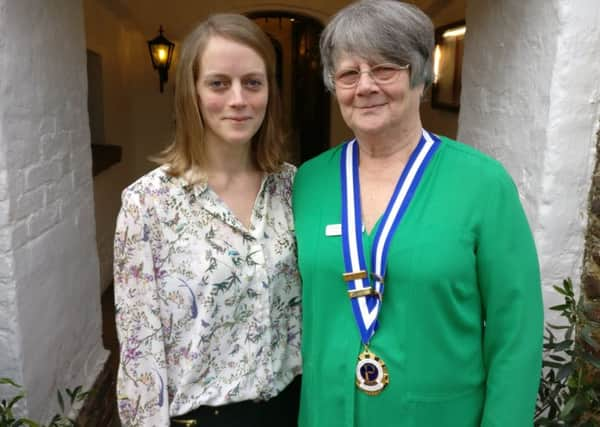Music therapy for those with neurological disorders discussed at club meeting in West Chiltington


Held at The Roundabout Hotel in West Chiltington, the talk ‘The Musical Brain’ was held by Helen Lang of The Health and Care Professions Council who explained about the musical treatments used at The Royal Hospital for Neuro-disability (RHN) based in Putney.
Russ Fry said: “Helen started off by explaining that the RHN was an independent medical charity that provides rehabilitation and long term care to people with complex neurological disabilities; caused by damage to the brain or other parts of the nervous system.
Advertisement
Hide AdAdvertisement
Hide Ad“Children, with learning disabilities, are also treated and there is also a separate Huntington Disease Unit all manned by multi-discipline teams of professionals of which Helen is proud to be a member.”
Established in 1854 the RHN was originally known as the Hospital for Incurables, based initially in Carshalton but moved premises to Putney in 1863.
It has always been helped and supported by high profile figures including Florence Nightingale, author Charles Dickens, poet John Betjeman, Thomas Hardy poet and author, Otto Goldschmidt the pianist and H.M. Queen Elizabeth 11 is the hospital’s patron.
Advertisement
Hide AdAdvertisement
Hide AdRuss added: “Next Helen introduced us to the value of music therapy in the treatment and rehabilitation of people with neurological disorders.
“We saw an image of how our brains respond to musical stimulation and a comparison between rat, cat, chimpanzee and human frontal lobe sizes.
“Melodic Intonation Therapy (MIT) is used on many stroke sufferers, who are left with little or no speech, and this takes the form of singing a short important phrase like ‘I love you’ to a tune known to the patient and repeated frequently.”
MIT aims to convert singing into speech and it emphasises the melodic patterns that already exist in normal speech so are more familiar to the patient.
Advertisement
Hide AdAdvertisement
Hide AdMusic therapy techniques such as this can help patients recover from brain injury and can also aid in physical techniques, communication and cognitive improvement.
“There were many interesting and relevant questions following Helen’s talk and it proved to be a most informative session,” added Russ.
“Joan Richardson gave the vote of thanks and we all appreciated Helen’s time with us; especially since we individually know of so many stroke victims in our elderly society.
“Thank you Helen we hope to see you again.
“The president Liz Allen Williams closed the meeting with a reminder that the next meeting on March 7 would be our AGM and we toasted The Queen and Probus the World Over.”